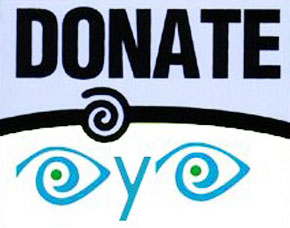Corneal Blindness is one of the most common causes of blindness in India and our country shoulders the largest burden of global blindness.
A corneal transplant is the replacement of damaged or diseased tissues or organs with healthy replacements. In this procedure, an ophthalmologist surgically replaces the diseased cornea with a healthy one.
When I donate my eyes and encourage my family, friends and people I interact with to donate their eyes, I bring in a possibility of change in the situation in India and we can bring light into the life of the deprived.
According to World Health Organization (WHO) calculations, there are about 10 lakh blind and visually disabled persons in India alone – this number could double by the year 2020 unless immediate interventions are made.
Of these 10 lakh, nearly 2 lakh persons have Corneal blindness.
Of these 1.4 lakh can be treated through corneal transplant.
Approximately 20,000 cases are being added annually and
ONLY 20,000 corneas are collected through eye donations annually
ONLY 50% of the donated eyes can be used
As of now we need 1.4 lakh corneas in India to combat Corneal Blindness
As a result, the patient line-up and wait to get a corneal transplant keeps getting longer with each passing day.
The cost of corneal transplant, in addition to unavailability for corneas, makes it practically impossible for the underprivileged to access these medical remedies.
Corneal transplant must be provided free of charge to those in greatest need.
Patients with corneal blindness can be visually rehabilitated only through transplanting their damaged or disease-affected corneas with healthy corneal tissues, obtained from voluntary donors.
Corneal problems can happen to anyone at any age.
Eye donations are hindered by lack of awareness and traditional beliefs and I strive to change that.
SO I PLEDGE TO DONATE MY EYES, DO YOU?








